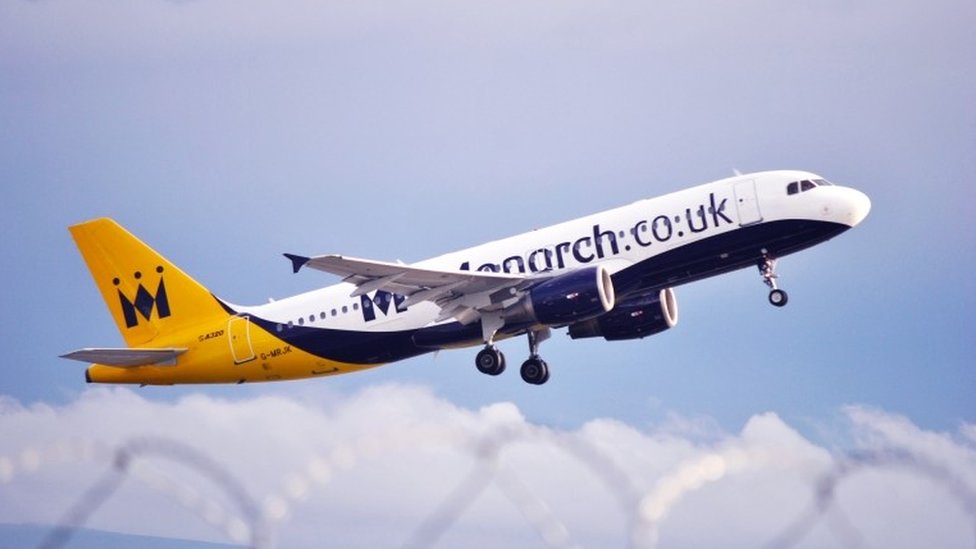This article consists of 15 pages and 2817 words. Monarch low cost airline In order to have full access to this article, email us at thedocumentco@hotmail.co.uk
Ref No: 3897
Introduction
The turnaround time operation is one of the most critical processes in the airline industry. However, many low-cost airlines (LCA) waste enormous amount of time on the ground, leading to rescheduling of flights and delays for customers affecting customer service. The issue has been a major challenge for many low-cost airline companies (Norin, 2008). This study focuses on Monarch Airline turnaround time operation analysis. Low cost Monarch Airline was the 5th largest airline in Britain with 3,500 employees. Recently, the company due to series of operational problems ceased operations. The objective of this business report is to carry out an operational analysis of Monarch Airline deconstructing the turnaround time process so as to explain the environment and competitive priorities of the operation and propose lean practices to low cost airlines facing similar issues.
Turnaround time is defined as the time an aircraft arrives at the airport until the time of its next sector departure, (Gok,2014). Different actors are involved in the turnaround process often leading to an inefficient process due to complex design of the process or the quality of conformance / faithfulness with which the delivered service agrees with the design (Figure 1).
The key tasks in the turnaround process include refueling, cleaning services, security checks, unloading and loading of baggage, catering replenishment, and pre-flight administration.
Figure 1. Aircraft turnaround process (Thorne, Barrett, McFarlane, 2007).
Monarch Airline turnaround time operation performance is explained under the performance objectives of quality, speed, dependability, flexibility, and cost. The average delay cost per aircraft during turnaround process is £50 per minute (Thorne, 2007). Monarch Airline recorded an average of 15.6 minutes of delay for each departure time (2005), the higher among the low cost carriers in Europe recording a cost of £780 per each flight due to turnaround time operation delay time. Overall, the costs associated with airline delay in 2005 for the 10 largest airports in the UK were over £650 million.
As a result of the extended delays on ground operation, Monarch was unable to meet on-time flight services to customers. On-time performance acts as an essential strategy to achieve quality service in transport as a low cost airline enhancing customer’s satisfaction. The main feature of achieving an on-time departure is the ability to complete
Introduction
The turnaround time operation is one of the most critical processes in the airline industry. However, many low-cost airlines (LCA) waste enormous amount of time on the ground, leading to rescheduling of flights and delays for customers affecting customer service. The issue has been a major challenge for many low-cost airline companies (Norin, 2008). This study focuses on Monarch Airline turnaround time operation analysis. Low cost Monarch Airline was the 5th largest airline in Britain with 3,500 employees. Recently, the company due to series of operational problems ceased operations. The objective of this business report is to carry out an operational analysis of Monarch Airline deconstructing the turnaround time process so as to explain the environment and competitive priorities of the operation and propose lean practices to low cost airlines facing similar issues.
Turnaround time is defined as the time an aircraft arrives at the airport until the time of its next sector departure, (Gok,2014). Different actors are involved in the turnaround process often leading to an inefficient process due to complex design of the process or the quality of conformance / faithfulness with which the delivered service agrees with the design (Figure 1).
The key tasks in the turnaround process include refueling, cleaning services, security checks, unloading and loading of baggage, catering replenishment, and pre-flight administration.
Figure 1. Aircraft turnaround process (Thorne, Barrett, McFarlane, 2007).
Monarch Airline turnaround time operation performance is explained under the performance objectives of quality, speed, dependability, flexibility, and cost. The average delay cost per aircraft during turnaround process is £50 per minute (Thorne, 2007). Monarch Airline recorded an average of 15.6 minutes of delay for each departure time (2005), the higher among the low cost carriers in Europe recording a cost of £780 per each flight due to turnaround time operation delay time. Overall, the costs associated with airline delay in 2005 for the 10 largest airports in the UK were over £650 million.
As a result of the extended delays on ground operation, Monarch was unable to meet on-time flight services to customers. On-time performance acts as an essential strategy to achieve quality service in transport as a low cost airline enhancing customer’s satisfaction. The main feature of achieving an on-time departure is the ability to complete ….


Recent Comments